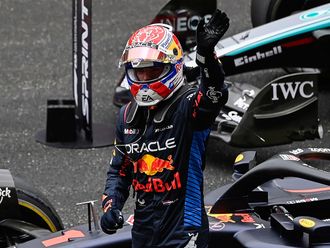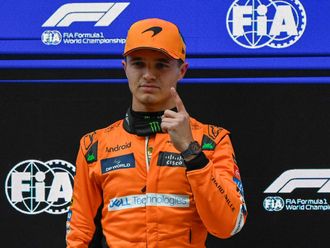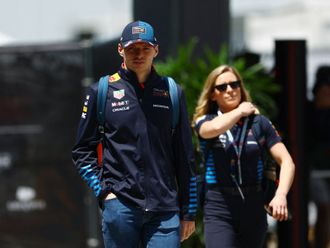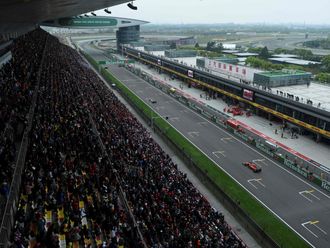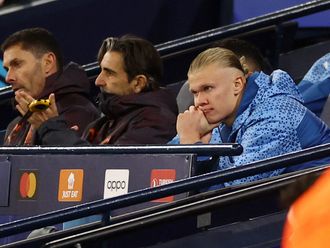Bahrain: Formula One lends itself, to a greater extent than perhaps even the United States presidency, to the power of dynasties. Just as Nico Rosberg’s 2016 world title could not have happened without the inspiration of his father, Keke, the champion 34 years earlier, so Damon Hill’s success has long stood as stirring emulation of his father Graham, who, courtesy of triumphs from Le Mans to Indianapolis to the Monaco Grand Prix, remains the sole holder of motorsport’s fabled Triple Crown.
Out in the desert sands of Bahrain this weekend, there promises to be an equally poignant passing of the flame. After cutting a swathe through the lower formulas, Mick Schumacher, the 20-year-old son of Michael, is making his graduation to the big league, having earned an F1 testing spot for Ferrari and Alfa Romeo.
At one level, it is but the first step on an uncertain path, as he toils to make his own name with a seven-time world champion as a parent. But at another, the sight of a Schumacher reunited with the red car is deeply resonant. It is a chance, given Michael’s confinement to the family home in Switzerland after a ski accident in 2013, to salvage some grace from the bleakness, to provide one note of hope in a tragedy that never ends.
Mick, so far, is being shepherded gently into the public glare. A strict PR strategy, dictated by his mother Corinna, sees to it that he never faces any questions about Michael’s condition. By degrees, though, he is growing more comfortable with his heightened profile, recently appearing in the Race of Champions in Mexico City alongside Sebastian Vettel. “We all know how it would be more special to have Michael here,” Vettel said. “We still miss him. But I’m sure he would be proud of his son.”
Those who have tracked Mick’s rise, from his karting debut in 2008 to securing the Formula Three championship last year, agree that the apple does not fall far from the tree. But there are subtle differences: where Michael gained a reputation for pushing to the limit in every practice session, Mick is known to be more calculating. It is an approach that should serve him well. Before he can prove himself as an F1 star of the future, he has his first Formula Two campaign to consider, starting with a race on Saturday with the Italian Prema team.
Still, the line of succession is clear enough. Ferrari, at almost the same time they launched an exhibition celebrating Michael’s career, confirmed Mick as a member of their driver academy. The hopes invested in his prospects are palpable. At first, these were a burden — he initially competed under the pseudonym Mick Betsch, using his mother’s maiden name — but he has slowly come to terms with the weight of paternal inheritance.
“My dad had a huge influence,” he said. “He’s my idol and I’m following everything he did, looking for something I can use myself. He had a huge role in how I’m driving now. Being compared to my father was never a problem for me. To be compared to the greatest driver in F1 history is the goal you want, and to have that as my idol and father is very special.”
At first glance, the physical resemblance between father and son is striking. But where Michael’s record of 91 race victories made him arguably the most recognised sportsman on the planet, Mick has learnt to cherish his relative anonymity. “If I go to the city, I’m happy that I’m free, that nobody knows who I am,” he said.
“I guess we have done a good job there, in keeping the private life really private.”
It is not a luxury, one senses, that he will be able to enjoy much longer. He is on the F1 fast track. “Obviously,” he concedes, “I am more than excited.”
After the nightmare that has engulfed his father, Mick’s ascent offers a precious platform to see the Schumacher name in lights once more.


